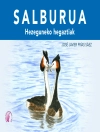Before commercial whaling was outlawed in the 1980s, diplomats, scientists, bureaucrats, environmentalists, and sometimes even whalers themselves had attempted to create an international regulatory framework that would allow for a sustainable whaling industry. In Whales and Nations, Kurkpatrick Dorsey tells the story of the international negotiation, scientific research, and industrial development behind these efforts —and their ultimate failure.
Whales and Nations begins in the early twentieth century, when new technology revived the fading whaling industry and made whale hunting possible on an unprecedented scale. By the 1920s, declining whale populations prompted efforts to develop “rational”—what today would be called sustainable—whaling practices. But even though almost everyone involved with commercial whaling knew that the industry was on an unsustainable path, Dorsey argues, powerful economic, political, and scientific forces made failure nearly inevitable.
Based on a deep engagement with diplomatic history, Whales and Nations provides a unique perspective on the challenges facing international conservation projects. This history has profound implications for today’s pressing questions of global environmental cooperation and sustainability.
Watch the trailer: http://www.youtube.com/watch?v=3Qs Ll M5KTx0
Daftar Isi
Foreword by William Cronon
Acknowledgments
Preface
Introduction
1. A Global Industry and Global Challenges
2. The Pelagic and the Political
3. World War and the World’s Whales
4. Cheaters Sometimes Prosper
5. Melting Down and Muddling Through
6. Save the Whales (for Later)
7. The End of Commercial Whaling
Epilogue
Appendix: Whaling Data, 1904–1965
Notes
Bibliography
Index
Tentang Penulis
Kurkpatrick Dorsey is professor of history at the University of New Hampshire.












